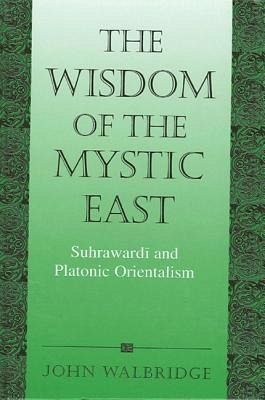
The Wisdom of the Mystic East
Suhrawardī And Platonic Orientalism
Versandkostenfrei!
Versandfertig in über 4 Wochen
93,99 €
inkl. MwSt.
Weitere Ausgaben:

PAYBACK Punkte
47 °P sammeln!
An expert on the thought of medieval Islamic philosopher Suhrawardi argues that philosophers have romanticized this work as a revival of "oriental" wisdom. Twelfth-century Islamic philosopher Suhrawardī attempted to revive Platonism in an era of Avicennan Aristotelianism. Modern scholars have portrayed Suhrawardī as wishing to revive an "oriental" wisdom and associate him with ancient Persia. In this book, John Walbridge uses Suhrawardī as a vehicle to explore the tendency of Platonic philosophers to romanticize oriental wisdom. The work presents Suhrawardī and defines the problem of Plato...
An expert on the thought of medieval Islamic philosopher Suhrawardi argues that philosophers have romanticized this work as a revival of "oriental" wisdom. Twelfth-century Islamic philosopher Suhrawardī attempted to revive Platonism in an era of Avicennan Aristotelianism. Modern scholars have portrayed Suhrawardī as wishing to revive an "oriental" wisdom and associate him with ancient Persia. In this book, John Walbridge uses Suhrawardī as a vehicle to explore the tendency of Platonic philosophers to romanticize oriental wisdom. The work presents Suhrawardī and defines the problem of Platonic orientalism, both in general and in relation to Suhrawardī. Egypt and the Hermetic tradition, ancient Persia and the notion of metaphysical light, and India, Buddhism, and the transmigration of souls are all covered in terms of their influence or lack of influence in Suhrawardī's thought. The book also explores the role of Platonic and Suhrawardian orientalism in various cultures over the years.


